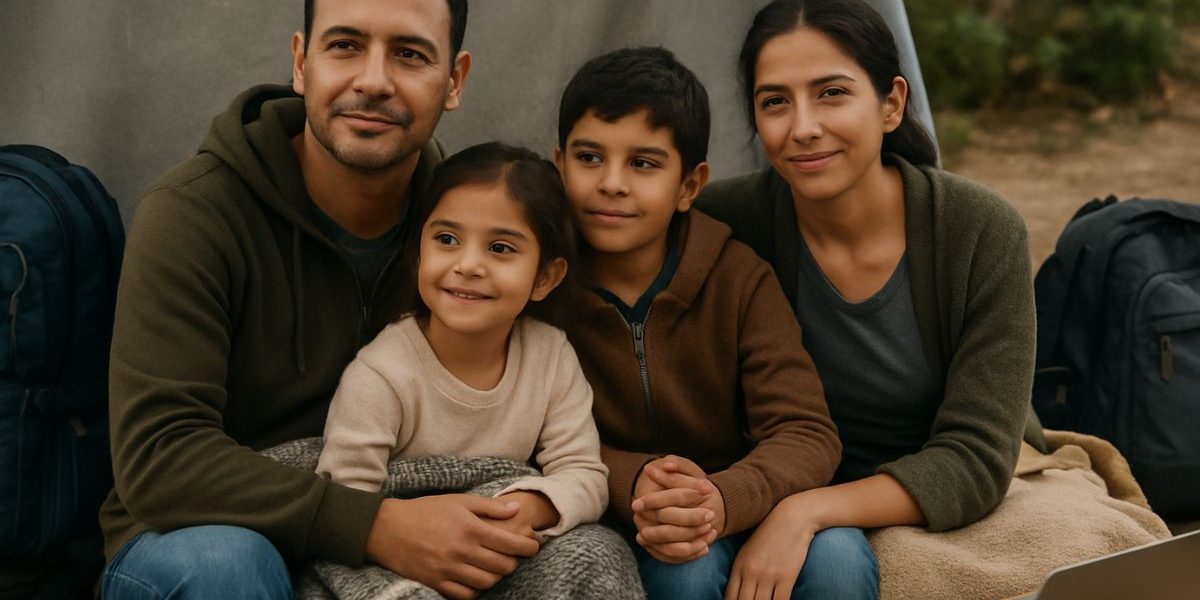Migration can offer the hope of a better life, but for many families, the journey is filled with hardship. Leaving home is never a simple decision. It often comes after months or even years of fear, insecurity, and the search for something safer or more stable. When families migrate, they face not only the logistical challenges of moving across borders but also deep emotional, legal, and financial struggles.
Understanding what migrant families go through matters. It sheds light on the pressures they face both during their journeys and once they settle into new communities. Recognizing these realities helps build better policies and deeper compassion.
What This Article Covers
This article explores the challenges migrant families face, including family separation, legal hurdles, economic hardship, and emotional trauma. It highlights why support systems matter and how communities can help families rebuild stability while respecting both security needs and human dignity.
The Risk of Family Separation
One of the greatest fears for migrant families is being separated. In some cases, border policies require children to be processed separately from adults. In others, logistical challenges during the journey—like arrests, detention, or illness—can force family members apart.
Separation leaves deep scars. Children may face months or even years apart from their parents, often with little understanding of why. Parents carry guilt, fear, and the uncertainty of whether they will ever reunite.
Policies around family detention and reunification have real human costs. Efforts to keep families together, whenever safe and possible, are critical for protecting mental health and long-term outcomes.
Navigating Complex Legal Systems
Even after reaching a new country, migrant families face complex legal hurdles. Filing asylum claims, applying for legal residency, or seeking refugee protections involves navigating complicated systems, often without legal help.
Language barriers, limited resources, and unfamiliar laws make the process even harder. A small paperwork error can mean the difference between staying safe or facing deportation. For families already traumatized by displacement, the legal maze can feel overwhelming.
Access to legal representation dramatically improves outcomes, yet many families cannot afford it. Public defenders or pro-bono legal services can provide a lifeline, but these resources are often stretched thin.
Economic Hardship in a New Land
Building a stable life in a new country is difficult under the best of circumstances. For migrant families, economic hardship often compounds other struggles. Finding work without legal status limits opportunities and can force families into low-paying, unstable jobs.
Parents may work multiple jobs just to afford rent and food. Children may miss school to help support the family. Without access to credit, affordable housing, or healthcare, every setback feels bigger.
Economic hardship is not just about survival. It affects integration, health, and the ability to participate fully in the new community. Programs that provide education, job training, and legal pathways to work can make a significant difference.
Trauma and Emotional Strain
Migration journeys are often dangerous and exhausting. Families may face violence, exploitation, or life-threatening conditions on their way to safety. Once they arrive, uncertainty about their legal status, separation from loved ones, and the stress of starting over can lead to emotional trauma.
Children are especially vulnerable. Studies show that children who experience forced migration and family separation face higher risks of anxiety, depression, and academic struggles.
Support for mental health is as important as support for housing or employment. Community programs that offer counseling, safe spaces for children, and trauma-informed care can help families heal and rebuild their sense of safety.
Building Trust in New Communities
Adjusting to a new culture is another layer of challenge. Migrant families must learn new languages, adapt to different customs, and navigate unfamiliar systems like healthcare, education, and law enforcement.
At the same time, they may face discrimination or suspicion from host communities. Negative stereotypes can make it harder to access services, build relationships, or feel like they belong.
Building trust takes time and effort. Schools, churches, nonprofits, and local governments can play key roles in creating welcoming spaces. Cultural competency training, bilingual services, and public education campaigns can bridge gaps and build stronger communities.
The Role of Policy and Public Support
Governments have the power to make migration journeys less dangerous and more humane. Policies that prioritize family unity, streamline legal processes, and protect the rights of migrants can reduce suffering and support integration.
At the same time, public support matters. Advocacy for fair immigration laws, volunteer work with resettlement organizations, and everyday acts of kindness all help create a more supportive environment for migrant families.
Fact-based conversations about migration challenges—not just emotional reactions—are essential for creating policies that balance security with compassion.
Investing in international cooperation is also key. By working together across borders, countries can address the root causes of migration, such as conflict, poverty, and climate change. Collaborative solutions can create safer conditions at home, reducing the need for perilous journeys and offering migrants real choices for their futures.
A Long Road Toward Stability
Migrant families often face years of struggle before they achieve stability. It takes time to heal from trauma, rebuild financial security, and create a sense of belonging in a new place.
But many families succeed. They open businesses, contribute to communities, raise children who thrive, and enrich their new countries with resilience, hope, and strength.
Acknowledging the struggles migrant families face is not about charity. It is about understanding the real dynamics of migration—and making choices that uphold human dignity while strengthening communities for everyone.
